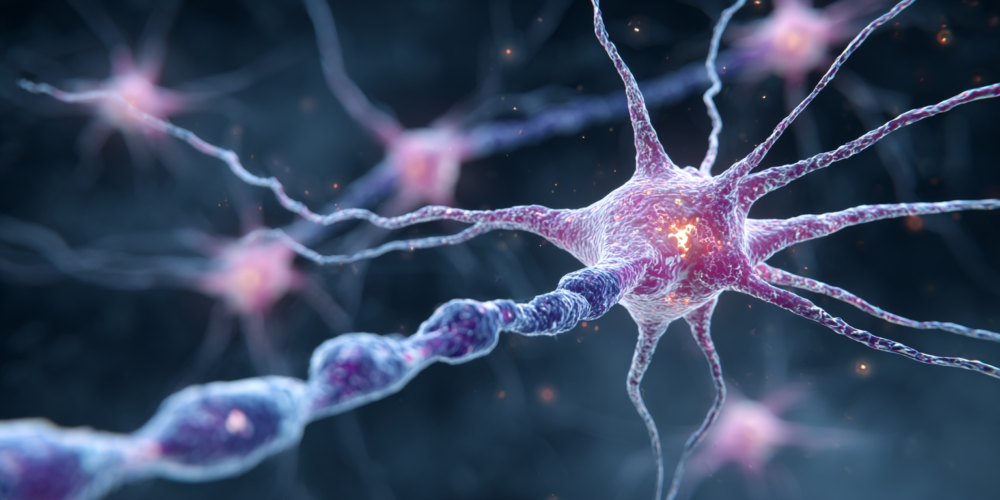
Our gut is a big deal for our overall health, and it turns out, it needs its own special fuel to work right. This isn’t just about the food we eat; it’s about specific nutrients that keep our gut lining strong and prevent problems like leaky gut. When our gut isn’t happy, it can mess with our immune system, our brain, and even how well we sleep. Understanding these connections can help us feel a whole lot better.
✨The Gut’s Special Fuel: Glutamine

Most people don’t realize that the cells lining our small intestine, which is a super important part of our gut, need a specific fuel to do their job. This fuel is called glutamine. Think of it like this: your car needs gas to run, and your small intestine cells need glutamine to function properly and make energy. These cells are incredibly thin, just one layer thick, so they need all the help they can get to stay strong and keep unwanted stuff out of your body.
Our gut is basically our first line of defense against the outside world. It’s where our immune system first developed, and it even has its own network of nerves. If your gut isn’t working well, the whole system can start to fall apart. When the gut lining gets weak, it can let things into your bloodstream that shouldn’t be there, like undigested food particles or toxins. This is often called “leaky gut,” and it can lead to a lot of inflammation and other issues throughout your body.
✅Key Takeaways:
- Glutamine is the main fuel for the cells in your small intestine.
- A strong gut lining, fueled by glutamine, protects your body from outside invaders.
- When the gut is inflamed or lacks proper fuel, it can become “leaky.”
⚙️What Happens When Your Gut Gets Leaky?

When your gut becomes permeable, or “leaky,” it means that things that should stay inside your digestive system are getting into your bloodstream. This can trigger a big response from your immune system, leading to widespread inflammation. And here’s the kicker: a leaky gut can often lead to a leaky brain. When there’s a lot of inflammation in your body, it can affect your brain, allowing things to cross the blood-brain barrier that shouldn’t.
This can show up in different ways, like old infections flaring up or just a general feeling of not being well. It’s a two-way street: sometimes inflammation elsewhere in the body can cause a leaky gut, and sometimes a leaky gut can cause inflammation throughout the body, including the brain. Things like certain foods, toxins, medications, or even environmental factors can contribute to a leaky gut.
➡️Exercise, Stress, and Glutamine Depletion

It might seem strange, but intense exercise can actually deplete your glutamine levels. This is especially true for endurance athletes. When you push your body hard, it uses up a lot of amino acids, and glutamine is one of the most important for keeping your gut healthy. Many athletes experience gut problems like diarrhea or stomach pain because their glutamine levels are too low. Taking glutamine supplements can make a huge difference, helping to keep the gut lining strong even during tough workouts.
Even a short stay in the hospital can impact your gut health. When you’re laid up, your body can become inflamed, and you might not get enough glutamine. This can lead to muscle loss and a leaky gut. So, whether you’re an athlete or recovering from something, your body needs more glutamine to support your gut.
Chronic stress also plays a role, but in a slightly different way. When you’re constantly stressed, your body is in “fight or flight” mode. In this state, your body isn’t focused on digestion. Blood flow to your intestines decreases, making it harder to digest food properly. This can lead to bloating, bacterial overgrowth, and other digestive issues. So, while exercise depletes glutamine directly, chronic stress messes with your digestion by keeping your body in a constant state of alert.
➡️Glutamine, Glutamate, and GABA: The Sleep Connection

There’s a fascinating connection between glutamine, glutamate, and GABA, especially when it comes to sleep and mood. Glutamine can turn into glutamate, which is a main “excitatory” chemical in your brain. Think of glutamate as the gas pedal for your brain – it keeps you alert and focused. But too much glutamate can make you feel wired, anxious, and unable to sleep.
Luckily, your brain can convert glutamate into GABA, which is a “calming” chemical. GABA is like the brake pedal for your brain, helping you relax and sleep. For this conversion to happen, your body needs enough vitamin B6 and magnesium. If you have too much glutamate and not enough GABA, you might experience insomnia, irritability, and a general feeling of being on edge.
So, if your gut is leaky or you’re low on glutamine, it can affect your brain’s ability to make enough GABA. This means you might need more glutamine not just for your gut, but also to help your brain create that calming GABA. Many people who struggle with sleep or mood issues might be low in GABA, and supporting the glutamine-glutamate-GABA pathway can be a big help.
➡️MSG and Glutamate Sensitivity

Monosodium glutamate, or MSG, is a common example of a glutamate source. While it’s often used to enhance flavor, some people are very sensitive to it. If you consume a lot of MSG or other foods high in glutamate (like some aged cheeses or caviar), you might experience symptoms like headaches or feeling wired. This is because you’re flooding your system with glutamate, and your body might struggle to convert it into calming GABA.
It’s all about balance. Your body is always trying to keep things in check. If you have too much glutamate and not enough GABA, you’ll feel the effects. This is why it’s important to not only make sure you’re getting enough glutamine but also the necessary co-factors like vitamin B6 and magnesium that help with the conversion to GABA. Many people are low in magnesium, so supplementing with it, especially at night, can be helpful.
✅Supporting Your GABA System

Supporting your GABA system is key for relaxation, mood, and sleep. While working on your gut health and glutamine levels is a longer-term process, there are ways to help your GABA system right now. This can involve supporting the GABA receptors in your brain and making sure you have enough GABA itself. Many people are deficient in GABA without even realizing it, and this can contribute to anxiety, depression, and sleep problems.
By taking a holistic approach – supporting your gut, ensuring enough glutamine, and providing the necessary vitamins and minerals for GABA production – you can significantly improve your mood, sleep, and overall sense of well-being. It’s about helping your body find its balance. Sometimes, you need a little extra help, whether it’s through supplements like glutamine or other interventions, to get to a place where you can do the deeper work of optimizing your health.
It’s important to remember that feeling better can take time. If it took years for your health to decline, it might take a while to get back on track. But by focusing on foundational elements like gut health, nutrient levels, and even stress reduction through practices like meditation, you can make significant progress. The goal is to optimize health, not just treat disease, and that often means supporting your body’s natural processes to help you feel your best.
Source: Dr. Scott Sherr

